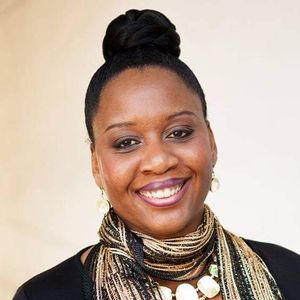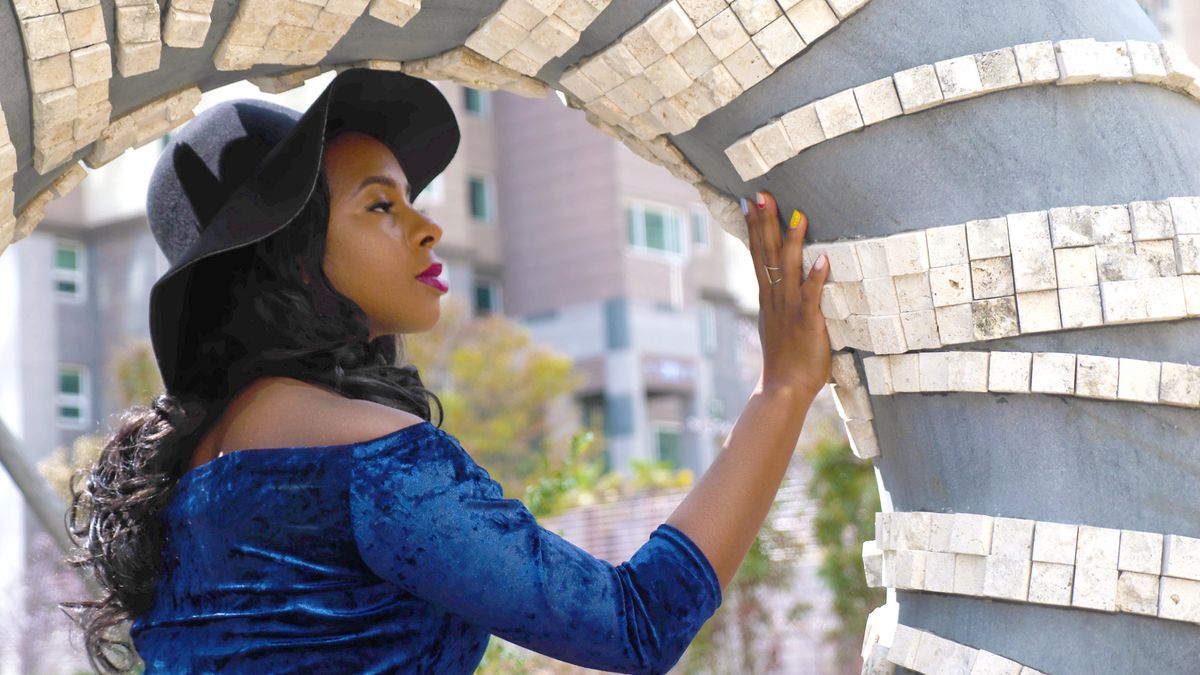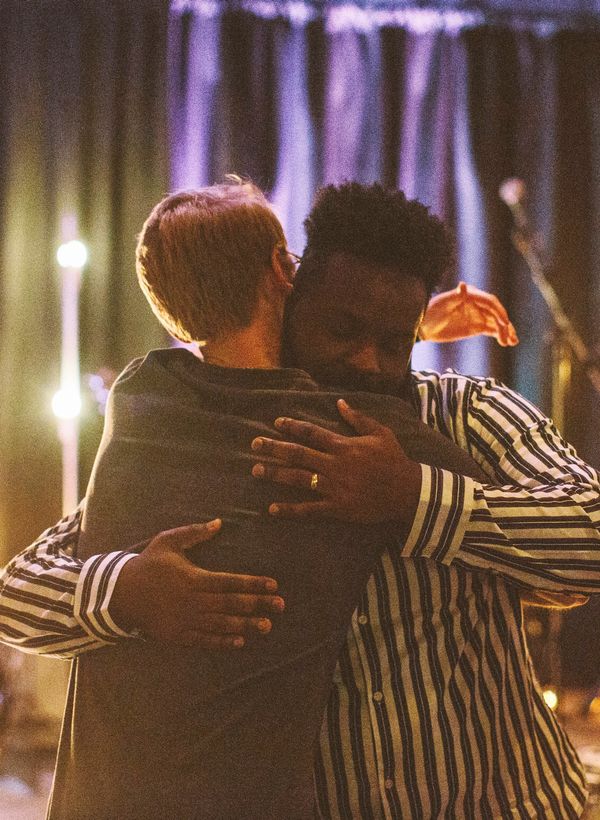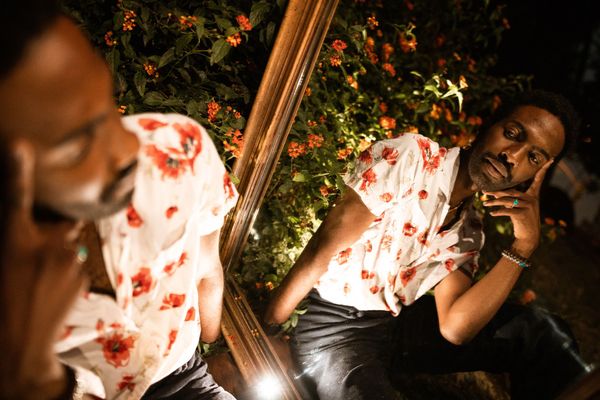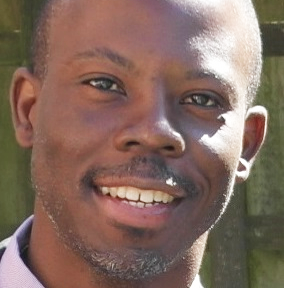Blackness, Where It All Began
Blackness means many things to different people, especially Black people. Black is the title or name for my people that has developed from some derogatory names used to define our skins. Initially, white Europeans, Portuguese, and Spaniards called African people they encountered Negro, which means black in Spanish.
Sometime in the 1400s, the Spanish and Portuguese used the term negro (Spanish for the color ‘black’) to describe the Bantu peoples they encountered in an area stretching along the Niger River. They labeled the region in West Africa, Negroland. White Europeans weren’t the first to call Black people of African descent out of their names. The Spanish were. The Europeans and English began referring to all people of African descent as “negroes” around the eighteenth century, which coincides with the Trans-Atlantic and Middle-Passage slave trades.
In America, “negro” was later capitalized, and became the proper English language term for people of Black African origin. American colonizers and their descendants continued to call us Black folks Negroes until the late-1960s when Stokely Carmichael coined the phrase “black power” at a 1966 rally in Mississippi. Not long after this, using the term negro to describe Black people in America became unfashionable.
Today we’re just “the Blacks” as some aloof white folks call us.
Black isn’t a name we (Black people from the diaspora) picked for ourselves. Black/Negro was the name European and white Spanish settlers used to describe the people they rudely encroached upon, which is why so many Black people take offense to the term Black or even African. It was disrespectful, in my opinion (and still is), but here we are in 2020, still undecided about what (or who) is Black and what (or who) is not.
Because the terms Negro and Black are not our self-designated titles chosen to represent us per se, it explains why using the term Black is so complex, so non-exclusive, so perplexing, and so offensive to many Black people. The forced nickname that stuck was the reason Black folks have evolved from using the disrespectful label negro to more civilized, empowering labels such as Black and African-American.
But African-American isn’t always a good fit either for every Black person in America, because all Black people aren’t Black and every Black person in America may not want to forsake the national origin and the rich heritage, lineages, and cultures associated with their particular Blackness. All Black isn’t the same. In America, if it ain’t white, it’s something else, and that something else’s default is Black.
I feel calling all Black people Black is not appropriate because it disrespectfully corrals every Black and Brown-skinned non-white person from around the globe into one largely discriminated group, disregarding their heritage, their culture, their nationality, while robbing them of being individual groups of Black people. It’s what white folks, white Spaniards, and Europeans have done to Black folks since they began colonizing indigenous spaces around the globe. Grouping us erases us. It’s time we stop erasing each other.
What’s worse now is that Black people in America also engage in lumping all Black people together, making Black some type of catch-all drawer. Too often we take on the conquerors’ languages and actions without fully understanding the implications of those languages and actions. Forcing everyone to be Black, especially those trying to figure out who or what they are and those who are aware of their national origins, is a lazy, disrespectful way to recognize each other.
Unpacking Our Black
Calling all of us Black is equivalent to calling all Spanish people Hispanic or Spanish-speaking without respecting their national origins, ethnicities, heritages, or even their own preferences. Their appearances (and accents) are deceiving. Anyone with a significant amount of experience with Spanish, Hispanic, and Latin American people understands how different the cultures and traditions of each are. Cuban food is different from Salvadorian food. Mexican music (i.e. Mariachi, Banda, and Ranchera) is very different from Cuban music (i.e. Salsa, Merengue, and Bachata). Traditional Venezuelan foods are not the same as Costa Rican or Guatemalan foods.
White Portuguese and white Cubans don’t want you mixing them up with darker-skinned Mexicans or Puerto Ricans, especially those with Afro-Mexicans and Afro-Puerto Ricans. Each Spanish-speaking ethnic group or culture will let you know quickly what they are and what they are not. Acknowledging the distinction between the cultures of the Hispanic and Latinx people is a requirement.
Colorism is an entirely unique type of caste system predominantly found in minority communities globally, especially Black ones. The practice of discriminating against Black people with darker skin in favor of Black people with lighter skin and treating them more favorably is rooted in slavery. While many Black people in America aren’t always able to determine our Black origins due to poor record-keeping during slavery, many descendants of those enslaved by the British are able to trace their ancestral roots because the British kept meticulous records. Those records detail what slaves looked like, which helps descendants of enslaved Black people and Africans trace their ancestry to not only their slave owners, but in some cases the owners who were also their fathers.
In American history, slavery created a strict caste system that distinguished Black and Negro enslaved people by their skin tones. Lighter-skinned enslaved were usually mixed raced and favored by white enslavers. The lighter-skinned enslaved were frequently fathered by white enslavers (which were conceived through raping enslaved females) and were, therefore, privileged. Lighter-skinned Black people still benefit from those privileges today. Even as we discuss Black social justice issues, lighter-skinned Black and white people are usually the ones given the floor. This leaves little space for darker-skinned Black people to talk about the issues that uniquely impact them. Even as we try to talk about racial discrimination against Black people, whiteness divides us through colorism.
I know it’s toxic, but colorism is a perfect example that shows how powerful and harmful white supremacy and racism are to a Black person’s mind. White supremacy has taught us to hate ourselves while overlooking what they’ve done to us.
Almost every Black community on earth has colorism issues. Our colorism problems stem from the need to be whiter for survival. In order for Black people in America to have our humanity and dignity restored, we must demand whiteness recognize the differences between our Blacks. We must teach white people and Europeans that Black people are not a monolith, and yes, that all Black is beautiful.
Even using the label to describe some of our issues is wrong. We must stop using the term Black as a junk drawer catch-all phrase to describe people who have had already had their entire heritage and lineages erased because they were looking at as property and not as human beings. To forget or ignore this is to embrace white supremacy, and Lord knows it doesn’t need any more help.
Throwing out the casual “we all Black” is not appropriate for every situation pertaining to the lives and needs of Black people, because our individual circumstances, needs, and struggles are not the same. These contrasting conditions shape our vehicles and paths for upward mobility.
Some Black people don’t want to be associated with their Blackness at all.
For instance, Tiger Woods’ deceased father was Black and his mother is Asian, but he doesn’t identify as being a Black man, and until recently he’s avoided any discussions of racial injustice and racial discrimination in America even though his Black father, who was also a military veteran, likely served in a segregated branch. His mother raised him as Asian. We Black folks claim Tiger Woods, but Tiger doesn’t acknowledge us. He didn’t want our struggle, but white people made sure he was exempt from it. Madison Keys, an American tennis player who has a Black father and white mother, does not claim either race.
The Black journeys of President Barack Obama, Tracy Ellis Ross, and Senator Kamala Harris are much different from the Black experiences of, say, Supreme Court Justice Clarence Thomas, media mogul Oprah Winfrey, or actor Viola Davis. While President Obama identifies as Black folks in the struggle, Justice Thomas does not. We may all look Black according to America’s social order, but there are many Black and biracial people who want nothing to do with Blackness. Blackness is a hard life to live, and some people would rather deny it exists or be affiliated in any way, shape, or form with the struggle.
The Current Debates on Blackness
Many people are debating about Blackness for different reasons, mostly because Senator Kamala Harris is running for Vice President. Lazy and/or ignorant white people are now trying to classify her because every non-white person must be placed in America’s social hierarchy in order to receive his or her appropriate level of discrimination. Race plays a role in everything. The other robust discussions surrounding Blackness involve white people, Black people, and reparations. White people want to determine not only who gets reparations, but the value of their injury. Likewise, American descendants of the slaves reject the idea that new Black immigrant arrivals or Black persons who were not direct descendants of enslaved Americans who built this country are entitled to American reparations.
Americans, including Black ones, don’t know how to talk about or describe multiracial people because for so long the default has been white. We Black folks collectively never had the opportunity to discuss our differences as individual groups because white people didn’t care. They had so much power we had no opportunity to force such a discussion. With the Blackening and Browning of America comes the need to differentiate ourselves to ensure we finally have our individual and collective needs and issues addressed. We know better than anyone all Black people aren’t the same, and all Black people aren’t treated equally. As some of us attempt to do this, expect pushback. Everyone doesn’t fully understand the need for such dialogues, but as we get more comfortable talking about Blackness, people will see the need to address Black groups individually.
A Little About the Diaspora
There are many groupings of Black people here in America. Let’s just take a peek at the tip of this iceberg . . . first Black Americans consider themselves Foundational Blacks (FBs) or American descendants of slaves (ADOS) who also have the distinction of being the second group of enslaved people, after the Native Americans. ADOS or FBs were once the largest group of people in America thanks to Black women being bred like animals specifically to work plantations for enslavers. ADOS are descendants of the Trans-Atlantic slave trade to America. These descendants of enslaved people were born and raised in America and live all over the United States. Most ADOS live in the South, where they remained after their ancestors were freed. Today more Black people live in the South than anywhere else in America.
But there are other kinds of Black people here in America who are rarely discussed and frequently under-represented because the country fuses its Black citizens together as if they have the same cultural backstory as Afro-Latins, British African-Caribbeans, Africans (who had their entire continent erased, eventually becoming Black). And let’s not even get into all the Black biracial and multiracial people who acknowledge their African lineage in addition to whatever other lineages they possess.
Then there are biracial Black Germans, Australians, British, Africans, Indians, the biracial/multiracial Black folks born here in America, and those Black immigrants who come from other places but don’t claim American Blackness. They claim their parents’ Black heritage based upon their respective national origins. When Brown people can trace their ancestry directly back to Africa it reshapes the entire conversation on Blackness.
Our Black is complicated, complex, and not always easy to define. And that’s okay.
What We Identify as Individually Matters
I identify as “Black” because I don’t know my African ancestry thanks to slavery. “African-American” didn’t feel right for me because none of the Africans I ever knew claimed American Black people. They mostly viewed us the same way white people view Black people. Besides, Africa has fifty-four nations. How do I even figure out where I came from or where I belong? I’d just be exchanging one set of problems for another.
But there are a significant number of Black people who like to embrace all of their lineages, the ADOS, and those non-Black lineages. I respect it. I have no right to pigeonhole Black folks who do so. No other group of people is forced to pick a color except Black people. It’s up to each individual Black person to identify themselves. When we don’t decide, white supremacy decides for us. For me, being Black isn’t right, but it sure as hell is easy in America. It cuts out all the side conversations white folks don’t care about our caste system’s classifications. Black is the American catch-all for everything designated as not white and/or not Hispanic. Brown is the catch-all for everything Hispanic and Latinx that’s not Black. Everyone else gets grandfathered into whiteness as long as it’s not mixed with white Black. And then there are the poor biracial folks.
America forces biracial folks to pick a team, and most times because America adheres to a skin color caste system. And unless one can pass as something other than Black (the way Jews, European Spaniards, or Cubans pass can pass as white), white supremacy forces them to be Black. Many biracial people are treated as Blacks, even if their parents raised them as white.
I didn’t even get into how many immigrant Black people don’t want to be lumped in with American Black people because they look down upon us as a group collectively. They don’t have the same struggle. Some of these resistant Black people were free long before American Black people. Many Black immigrants don’t have connections to America’s Civil Rights fights. They are beneficiaries of our labor, yet they aren’t vested in the struggle of Black Americans. These types of Black people prefer to identify as People of Color (POC) instead, and they act like POC. There isn’t enough time in a day to share how different and complex Black is, but I think I’ve provided enough information to start you on a journey to explore what Black is and is not.
The biggest takeaway is that Black people are not a monolith. We don’t think alike; we don’t share the same struggles; we don’t want the same things; we don’t originate from the same countries; some Black folks don’t want to be associated with American Black people, and we didn’t arrive in America the same way. The 1989 Black immigrant from the United Kingdom may not care about the struggles of Southern Black descendants of slaves from 1866 or understand how they’ve benefited from those Black citizens fighting for the rights of all Black people. Likewise, a Black Kenyan who recently immigrated to the states from Germany may not understand America’s complex racial caste system and may harbor racial stereotypes they’ve had ingrained via American propaganda and European colonization that took place throughout the globe.
The label Black, as an all-purpose label for a mythical monolith, was conjured up by white people and European Spaniards to divide and conquer. A failure to dissect Black people and the diaspora perpetuates white supremacy.
All Black is beautiful, but all Black isn’t the same. Black is not a monolith, and we need to treat each Black person or group with the respect and care each deserves. In order for us to understand how similar we are, we must take those deep dives into understanding how different we are.
Black is more than skin deep.

